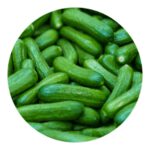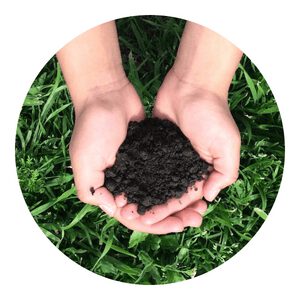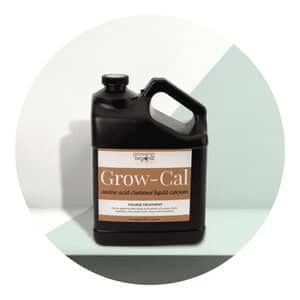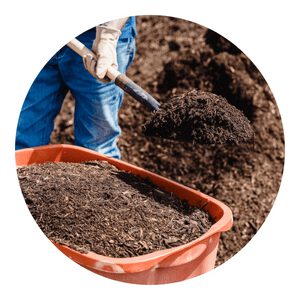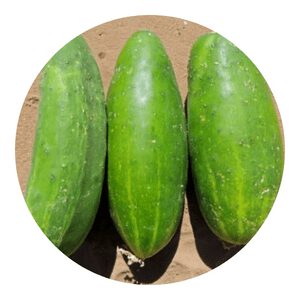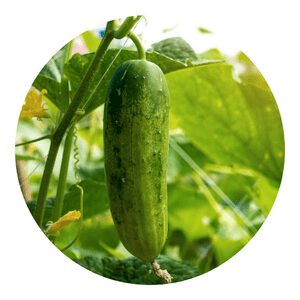How to grow diva cucumbers
Chappy the gardener is happy to present the complete guide to grow diva cucumbers.
In this comprehensive guide, Chappy covers everything from choosing the right variety of cucumber to planting and caring for your plants.
He also shares his secrets for harvesting and preserving your bounty.
Whether you’re a seasoned gardener or a beginner, “The Complete Guide to Growing Diva Cucumbers” is a must-read if you want to enjoy delicious, homegrown cucumbers all season long.
Diva Cucumber Menu
Choose a location
When you are growing Diva cucumbers, it is important to choose a location that will provide them with the right amount of sun and humidity.
A spot that receives full sun for at least six hours per day is ideal. If your garden doesn’t have a spot that gets full sun, you can grow Diva cucumbers in containers.
Be sure to use a potting mix that drains well and keep the plants moist but not wet.
Prepare the soil
Sow the seeds
The vines of these plants can grow up to 10 feet long, so be sure to give them plenty of room to spread out.
Water and care for the plants
Cucumbers are a vine plant that grows quickly and can be a great way to get kids interested in gardening.
They are a part of the Cucurbitaceae family which includes melons, squash, and pumpkins.
While cucumbers can grow in many different types of soil, they prefer well-drained soil with plenty of organic matter.
Sandy loam soils work best, but they will grow in most soil types as long as they are well drained.
Adding compost or aged manure to the planting hole will help ensure good growth.
Watering is critical for growing healthy cucumbers.
The plants need 1-2 inches of water per week, especially when flowering and fruiting.
Mulching around the plants will help conserve moisture and keep the fruits clean.
Our garden has been blessed this year With rows of green and healthy zucchini But then we found a cucumber plant Hidden away and looking rather ill We didn't give up on it though And started to water it every day The plant perked up and began to grow And before we knew it, there were diva cucumbers! They're long and slender with a smooth skin And they taste so much better than the rest We can't wait to share them with our friends Next time they come over for a visit!
Chappy The Gardener
Harvesting and storing diva cucumbers
Diva cucumbers are a type of cucumber that is known for its thin skin and lack of bitterness.
This makes them perfect for eating raw or adding to salads.
They can be harvested at any time, but are best eaten when they are about 10 inches long.
To store diva cucumbers, place them in a plastic bag in the fridge.
Are Diva cucumbers vine or bush?
Diva cucumbers are a parthenocarpic variety, meaning they don’t need pollination to set fruit, so the plants can produce an abundant harvest with minimal effort from the gardener.
The vines will produce slender fruits that measure eight inches in length when fully mature, and it’s best to pick them when they’re young as this is when they have the most flavor.
Benefits of Organic Fertilizer for Growing Diva Cucumbers
Organic fertilizer is an essential component of growing healthy, high-quality Diva cucumbers.
These cucumbers are known for their sweet flavor and texture, making them a popular choice with gardeners.
Organic fertilizer helps to provide the necessary nutrients that Diva cucumbers need in order to thrive and produce the best quality fruit.
Here are some of the benefits of using organic fertilizer for your Diva cucumber plants:
Organic fertilizers can help improve both soil fertility and structure – something that is key to ensure successful Diva cucumber growth.
Organic fertilizers also release vital nutrients slowly over time, allowing your crops enough time to absorb all they need.
This slow release also helps to minimize any potential nutrient overload or leaching into the surrounding environment.
Best Types of Organic Fertilizers
Organic fertilizers are a great way to ensure your Diva cucumbers are receiving the nutrients they need for optimal growth.
With so many options out there, it can be overwhelming to decide which type of organic fertilizer is best for growing delicious and healthy Diva cucumbers.
To help make this decision easier, here are some of the best types of organic fertilizers you can use when growing Diva cucumbers.
The first type of organic fertilizer that is great for Diva cucumbers is compost.
Compost is made up of decaying plant material, such as leaves and grass clippings, and can provide a wealth of nutrients to your plants.
Compost also helps improve soil texture, making it easier for nutrients to reach the roots of your cucumber plants.
The next type of organic fertilizer for growing Diva cucumbers is manure.
Manure is a great source of nitrogen, which is beneficial for plant growth and can also help to prevent diseases from occurring in your plants.
Tips to Grow Diva Cucumbers Hydroponically
Hydroponic gardening is a great way to get fresh vegetables year-round.
Diva cucumbers are an excellent choice for hydroponic growing because they have a tender skin and crisp flavor, making them perfect for salads and sandwiches.
Here are some tips on how to grow delicious diva cucumbers in your hydroponic garden.
First, make sure you purchase the right equipment to get started.
You’ll need a reservoir tank, water pump, and nutrient solution specifically designed for growing vegetables in water.
Next, choose the appropriate growth medium such as peat moss or coco fiber; these media help retain moisture while providing aeration for plants’ roots.
Finally, it’s important to provide your diva cucumber plants with plenty of light so that they can photosynthesize efficiently and produce large fruits.
How to Grow Diva Cucumbers Aquaponics
Diva cucumbers are a unique and flavorful type of cucumber that can be grown in an aquaponics system.
Aquaponics is a combination of hydroponics and aquaculture, which uses fish waste as fertilizer for plants.
This form of gardening is increasingly popular due to its efficient use of resources and the fact that it does not require soil or traditional fertilizers.
Growing diva cucumbers in an aquaponics system is relatively simple, with just a few key steps to ensure success.
The first step in growing diva cucumbers using aquaponics is to set up the tank.
This should include a filter and pump designed specifically for fish tanks, as well as any necessary lighting equipment if you are setting up indoors.
How to Grow Diva Cucumbers in a Raised Beds
Do you want to learn how to cultivate and harvest delicious diva cucumbers?
Growing these crunchy vegetables in raised beds can be a great way to get a head start on the season.
Diva cucumbers are known for their sweet flavor and are well suited for container gardening and raised bed planting.
With the right conditions, they will produce an abundance of fruits throughout the summer months.
Here is what you need to know about growing diva cucumbers in raised beds.
The first step is preparing your raised bed by adding soil amendments such as compost or aged manure.
Make sure that the soil has good drainage and is amended with organic matter before planting any seeds or transplants.
It’s important to keep your soil moist but not too wet, as this can lead to fungal diseases in your plants.
Are Diva cucumbers self pollinating?
Diva cucumbers are believed to be self-pollinating, meaning that they do not require the help of bees or other pollinators to produce fruit.
However, some gardeners report that their plants do not always set fruit when grown from seed, leading to speculation that there may be some level of cross-pollination taking place.
Are Diva cucumbers hard to grow?
Diva cucumbers are a type of heirloom cucumber that is considered to be difficult to grow.
They are known for their long, slender shape and sweet flavor.
Diva cucumbers are best grown in warm climates where they can vine and spread out.
In cooler climates, they may not produce as many fruits or they may be smaller in size.
Can you save Diva cucumber seeds?
Saving Diva cucumber seeds is a great way to get a head start on your garden in the spring.
Diva cucumbers are a type of heirloom cucumber that is known for its excellent flavor and high yields.
Saving the seeds from this cucumber is easy and can be done in just a few simple steps.
The first step is waiting until your cucumbers are good and ripe.
This usually takes around 1-2 weeks after they have been picked from the vine.
Once they have reached full maturity, take them inside and cut them in half lengthwise.
Remove all of the pulp and scoop out the seeds with a spoon or your hands – remember to wear gloves!
Place the seeds on a plate or paper towel and let them dry completely before storing away in an airtight container or envelope for future use.
If done correctly, these saved Diva cucumber seeds will last up to five years!
In conclusion, growing diva cucumbers is a relatively easy process that can provide the gardener with an abundant crop of delicious cucumbers.
By following the simple steps outlined in this article, anyone can enjoy this tasty vegetable.
So why not give it a try?
Click To Grow
Helps Us Grow – Share If You Like

